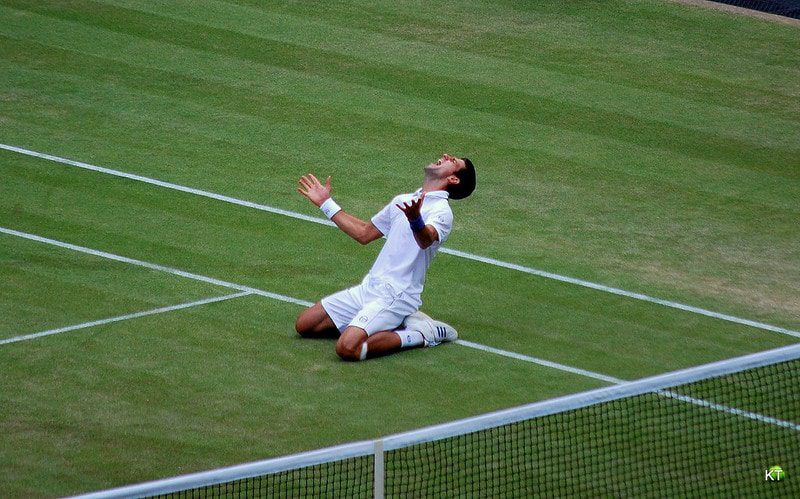
Serbian tennis star Novak Djokovic gave an exclusive interview to the BBC in which he reaffirmed his stance on vaccination, stating that he “was never against vaccinations,” but instead “always supported the freedom to choose what you put in your body.”
Asked whether he was willing to forego the chance of becoming statistically the best tennis player to ever pick up a racket, he confirmed that he was willing to sacrifice participation in major tournaments such as the French Open and Wimbledon, both of which already announced not allowing participation of unvaccinated players.
The principles of decision making on my body are more important than any title or anything else. I’m trying to be in tune with my body as much as I possibly can.
Djokovic did stress, however, that he is keeping “an open mind” about vaccinations, emphasizing that “we are all trying to find collectively, a best possible solution to end COVID.” At the same time, he said, “I always carefully reviewed, assessed everything that comes in from the supplements, food, the water that I drink, sports drinks, anything really that comes into my body as a fuel.” He concluded that based on “all the information” that he got, he decided “not to take the vaccine.”
Earlier this year, Djokovic was banned from participation in this year’s Australian Open, a tournament he had previously won nine times, and was deported from Australia after his visa had been canceled in a lengthy back and forth over his vaccination status. The Australian government created a dangerous precedent when ultimately it revoked Djokovic’ visa, not based on his vaccination status or the validity of his exemption, but due to the “public interest” in “health, security, and order,” as the Australian Prime Minister Scott Morrison said in January. This was confirmed by Djokovic in his latest interview:
The reason why I was deported from Australia was because the Minister for Immigration used his discretion to cancel my visa based on his perception that I might create some anti-vax sentiment in the country or in the city, which I completely disagree with.
The Australian government feared that the presence of Djokovic in Australia could incite riots against Australia’s restrictive COVID measures, as well as influence people that were still “undecided on the vaccination” alongside the “malleable youth.” The court in question based its decision on “common sense and knowledge of human nature,” and the lawyer of the government Stephen Lloyd called Djokovic an “icon of the anti-vaccination movement.” In doing so, Australia, once hailed as an ideal of a liberal democracy, had created a precedent allowing the government to deport any person the government might consider a danger to “health, security, and order” based on “common sense and knowledge of human nature.”
In the BBC interview, Djokovic also touched on his experiences in detention in Australia, describing them as “very hard.” It was out of respect to the legal process and the Australian Open that he didn’t speak up on the whole issue back in January.
“While I was still at the airport, I couldn’t use my phone for three, four hours,” Djokovic said. Only later was he allowed access to his phone to get in touch with his family when inside the detention center. While the Serbian tennis star was allowed to train prior to his first court hearing, it was far from the usual experience.
I had helicopters flying above every single training session … cameras all over the place. Also, I felt that energy and those looks from my colleagues and people that were in the tennis facility … that really hurt me a lot.
Djokovic also emphasized in the interview that he was neither making light of COVID, nor trying to catch the illness in mid-December to get an exemption to go to Australia.
Shortly after being deported from Australia, it surfaced that Djokovic has an 80% stake in a Danish biotech firm developing a treatment for COVID-19, which he hopes might some day present a viable alternative to the mRNA vaccinations currently on the market.
